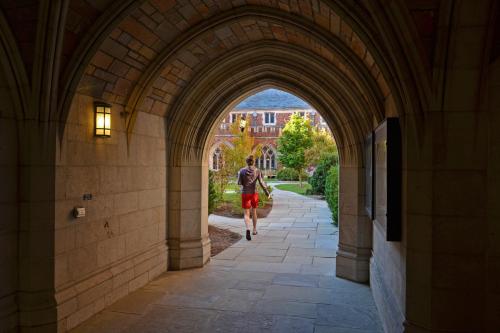Events with IAC Support
The IAC has cosponsored the following events in previous years:
- Roshni: South Asian Showcase, in collaboration with South Asian Society, Jashan Bhangra, Rangeela, MonstRAASity, Kalaa, Yale Dhvani
- NYC Field Trip, in collaboration with Yale African Students Association, Yale Black Muslims Students Association, Yale Undergraduate Association for African Peace and Development
- Lunar New Year Ball, in collaboration with the Chinese American Students Association, Taiwanese American Society, Asian American Students Alliance, Korean American Students at Yale, Vietnamese Students Association
- College Unions Poetry Slam Invitational, in collaboration with Jook Songs, WORD, ¡Oye!, TEETH Poetry
- Gospel Through the Ages, Yale Gospel Choir, Steppin’ Out
- Screening of Loving, in collaboration with the Racial and Ethnic Openness Club
Council Members
- Omer Bajwa, Chaplain’s Office
- Timeica Bethel, Afro-American Cultural Center
- Melanie Boyd, Student Affairs
- Samuel Byrd, Office of LGBTQ Resources
- Peter Crumlish, Dwight Hall at Yale: Center for Public Service and Social Justice
- Carolina Dávila, La Casa Cultural Center
- Ziv Eisenberg, Slifka Center for Jewish Life at Yale
- Sonya Forrester, Yale School of the Environment
- Nadeige Holmes-Fountain, Yale Athletics
- Burgwell Howard, Student Engagement
- Matthew Makomenaw, Native American Cultural Center
- Kimberly McKeown, Student Accessibility Services
- Maytal Saltiel, Chaplain’s Office
- Ozan Say, Office of International Students and Scholars
- Joliana Yee, Asian American Cultural Center (Chair)
Preventing and Addressing Discrimination & Harassment and Sexual Misconduct
Yale is a community committed to fostering an environment of diversity, mutual respect, and intellectual discovery in which all students can thrive.
Acts of discrimination and harassment are contrary to the community standards and ideals of our university. If you have experienced discrimination or harassment, been witness to a situation, or just need to talk, we encourage you to seek support. The resources, offices, and individuals highlighted on the Resources to Address Discrimination and Harassment Concerns website are available to provide guidance and to help you through informal or formal complaint procedures.
An integral part of this commitment is ensuring a campus environment free of sex- or gender-based discrimination. This includes promoting a welcoming environment for pregnant and parenting individuals. The Title IX website gives information on accessing support, reporting options, policies and definitions; and education and outreach.
Yale College students may also contact the heads or deans of their residential colleges or the directors of cultural and affinity centers and programs for assistance in accessing the appropriate resources.

